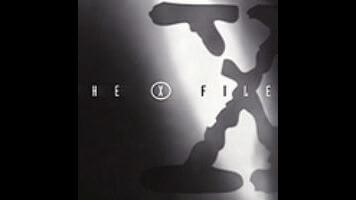The heaviest burdens shouldered by Fox’s six-part revival of The X-Files are the rose-tinted goggles of nostalgia, carried by anyone who considers themselves a fan of the original series. They’re a lens impossible to remove when faced with the prospect of The New Adventures Of Old Mulder And Scully. Gauzy haze of warm memories aside, those expecting a return to form should not be disappointed: Both for good and ill, The X-Files is back, and in essentially the original packaging. Even the original opening credits sequence is back, delighting those who prefer their TV intros comically outdated. The show picks up again feeling like it never left, at least in terms of mood and construction. Yes, the intervening years have aged the heroes and the world in which they live, but as far as the scripts, direction, and feel of the series, these may as well be mothballed episodes dragged out of deep storage, because everything you remember about the series is right there onscreen.
Unfortunately, that’s not always for the best, especially in the premiere. Beloved TV shows are usually remembered for their high points, and The X-Files is no different. Fans will posit classic installments like season three’s “Paper Clip” or season four’s terrifying “Home” as game-changing episodes that helped redefine what a serialized genre show could accomplish, and they’re not wrong. But what often gets minimized in those conversations are the clunkier episodes—and even by that rationale, the premiere installment of this new go-around is thin gruel. Stilted and cheesy in equal measure, it will trigger memories of the show at its most ham-fisted. Series creator Chris Carter wrote and directed the leadoff, and it indulges in all of his worst tendencies. Portentous speechifying, delivered in a rush of expository monotony, is strewn throughout, as even Duchovny, the most experienced pro at selling such snake oil, is reduced to grimacing his way through monologues bereft of conviction or coherence. It’s familiar, and not for the reasons you would hope.
The plot, such as it is, requires no prior knowledge of the show. Neophytes can rest easy, as the first five minutes is nothing but Duchovny in voice-over, giving an X-Files tutorial that serves as a recap (appreciated) and simplification (even more appreciated) of Fox Mulder & Dana Scully story. Over time, the original series made a hash of its overarching mythology, but the details of this tangle are generally shoved aside in favor of the broad strokes, in which two unlikely companions try to get at the truth, no matter how mysterious or implausible. The series begins with Scully and Mulder separated, the life (and cozy cabin!) they shared in the second film a distant memory. Scully is working in Washington, D.C. as a doctor, while Mulder has stayed off the radar. A request from their old boss Walter Skinner (Mitch Pileggi) brings them together again: He wants them to meet with Tad O’Malley (Joel McHale, doing his damnedest to sell an awkward and thankless role), an online Glenn Beck-meets-Alex Jones fearmonger, whose desire to confirm the existence of aliens leads him to seek out the original FBI agents tasked with such a duty. He takes them to meet a mysterious woman (played by The Americans’ Annet Mahendru), and the hunt for extraterrestrial conspiracies is back on.
The first episode demonstrates some of The X-Files’ weaker tendencies, though it possesses a hokey charm, one that comes from pretending as though the past 15 years of television never happened. But the miniseries immediately course corrects. Surprisingly, this comes from doing the opposite of what’s expected from these types of limited-run revivals: Rather than dragging a single storyline through six episodes, The X-Files jumps back into its classic structure, with episodes two and three serving as standalone installments. Aside from some minor nods to the ongoing mystery kicked off by the premiere, these stories are self-contained, like many of the series’ best episodes. Happily, The X-Files remembers what was so great about itself after all, and it wants to remind you, too.
Episode two pulls back from the over-the-top histrionics that infect Carter’s script, as another returning MVP, James Wong, delivers a smart and unsettling story about genetic abnormalities and the men who take advantage of such conditions. The dialogue reminds the audience—much more than anything in the premiere—what we like about these characters, and why they work so well together. Not only that, but it makes much better nods to how the intervening years have affected their relationship. Mulder is still quick to jump to supernatural conclusions, but his assumptions are tempered by experience, and Scully, despite playing the doubting Thomas once more, has also seen enough to entertain more extreme possibilities. (Her own alien-affected past plays a key role.) And they both make nice quips about their “old school” mentalities, which, given all they’ve been through, shows a remarkable adaptability to lives filled with near-death terror. They’d make great insurance salesmen.
If the second hour feels like a solid return to form, the third episode is superlative. Written and directed by Darin Morgan—the writer most responsible for discovering The X-Files’ sharply humorous tack—“Mulder And Scully Meet The Were-Man” is an instant classic. Reflecting on how many supposedly otherworldly or unexplainable events were debunked after they left the FBI, Mulder begins to lose respect for himself and the absurd scope of his life’s work. But a case that teases the existence of a monster, and the investigation conducted by Mulder while he’s in the throes of what’s essentially a mid-life crisis, ends up being a brilliant and empathetic justification of the series’ return. Morgan’s script—aided by funny performances from Anderson and Duchovny, along with guests Tyler Labine, Rhys Darby, and Kumail Nanjiani—makes the case for why The X-Files is still worth having around. No matter how unbelievable or silly, it argues, there’s always a need for the presence of Fox Mulder and Dana Scully.









































